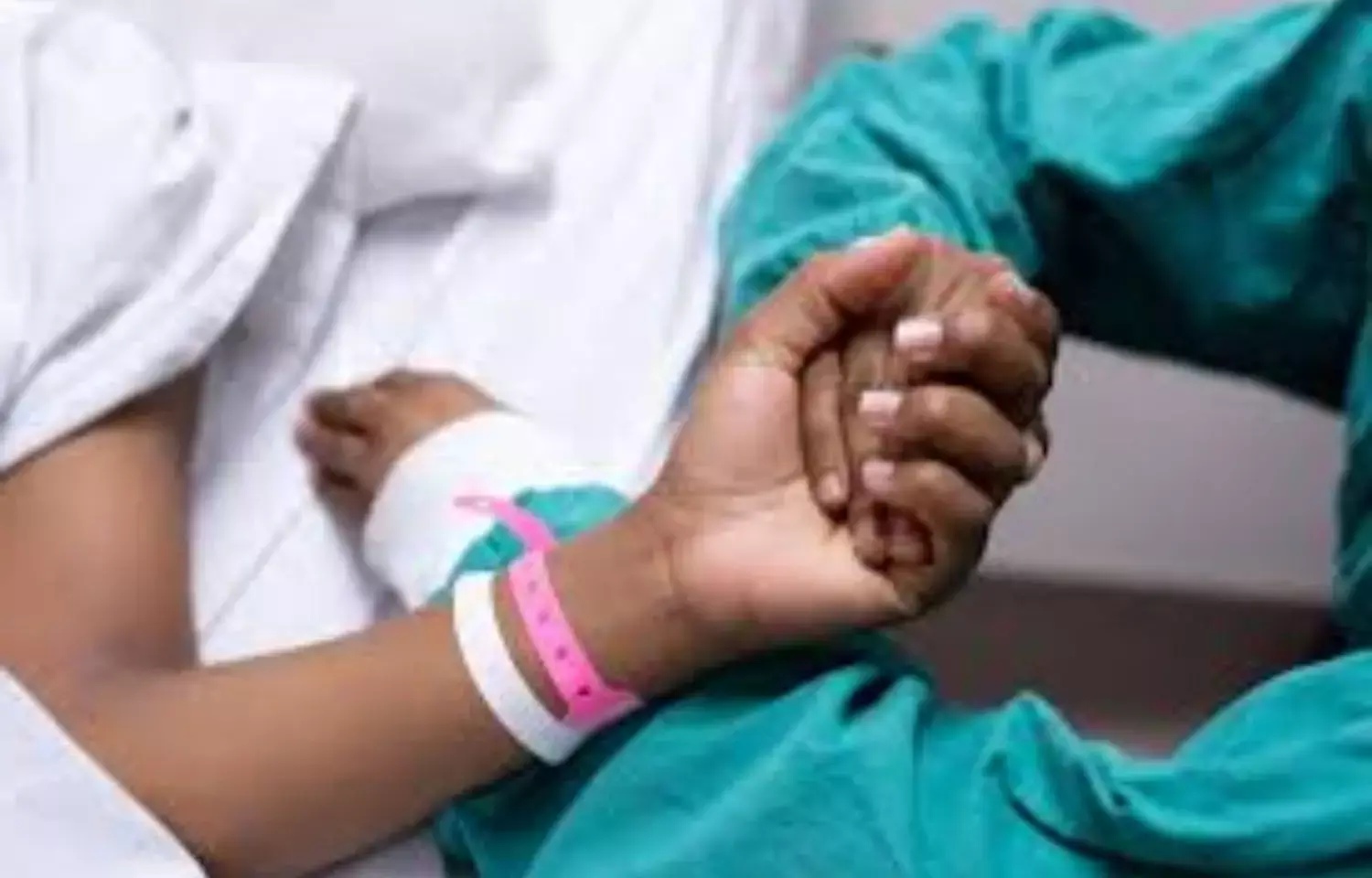- Home
- Medical news & Guidelines
- Anesthesiology
- Cardiology and CTVS
- Critical Care
- Dentistry
- Dermatology
- Diabetes and Endocrinology
- ENT
- Gastroenterology
- Medicine
- Nephrology
- Neurology
- Obstretics-Gynaecology
- Oncology
- Ophthalmology
- Orthopaedics
- Pediatrics-Neonatology
- Psychiatry
- Pulmonology
- Radiology
- Surgery
- Urology
- Laboratory Medicine
- Diet
- Nursing
- Paramedical
- Physiotherapy
- Health news
- Fact Check
- Bone Health Fact Check
- Brain Health Fact Check
- Cancer Related Fact Check
- Child Care Fact Check
- Dental and oral health fact check
- Diabetes and metabolic health fact check
- Diet and Nutrition Fact Check
- Eye and ENT Care Fact Check
- Fitness fact check
- Gut health fact check
- Heart health fact check
- Kidney health fact check
- Medical education fact check
- Men's health fact check
- Respiratory fact check
- Skin and hair care fact check
- Vaccine and Immunization fact check
- Women's health fact check
- AYUSH
- State News
- Andaman and Nicobar Islands
- Andhra Pradesh
- Arunachal Pradesh
- Assam
- Bihar
- Chandigarh
- Chattisgarh
- Dadra and Nagar Haveli
- Daman and Diu
- Delhi
- Goa
- Gujarat
- Haryana
- Himachal Pradesh
- Jammu & Kashmir
- Jharkhand
- Karnataka
- Kerala
- Ladakh
- Lakshadweep
- Madhya Pradesh
- Maharashtra
- Manipur
- Meghalaya
- Mizoram
- Nagaland
- Odisha
- Puducherry
- Punjab
- Rajasthan
- Sikkim
- Tamil Nadu
- Telangana
- Tripura
- Uttar Pradesh
- Uttrakhand
- West Bengal
- Medical Education
- Industry
Peripartum cardiomyopathy complicated by cardiogenic shock risky in Black, Hispanic patients: JAMA

USA: A recent study shows that Black and Hispanic women with peripartum cardiomyopathy (PPCM) during or shortly after pregnancy are at higher risk of developing cardiogenic shock compared to white women and face much higher in-hospital mortality.
The findings of the study, published in JAMA Network Open highlight significant racial disparities in heart transplantation (HT) and mortality in the US among hospitalized patients with PPCM complicated by cardiogenic shock.
In peripartum cardiomyopathy associated with poor prognosis, cardiogenic shock is a recognized complication. Racial and ethnic disparities have been described in the occurrence and outcomes of PPCM, however, it is not clear if these disparities persist among PPCM and CS patients.
To fill this knowledge gap, Titilope Olanipekun, Covenant Health System, Knoxville, Tennessee, and colleagues aimed to evaluate the temporal trends in CS incidence among hospitalized patients with PPCM stratified by race and ethnicity and to investigate the racial and ethnic differences in hospital mortality, mechanical circulatory support (MCS) use, and heart transplantation in a multicenter retrospective cohort study.
The study included hospitalized patients with PPCM complicated by CS in the US from 2005 to 2019 identified from the National Inpatient Sample (NIS). The incidence of CS in PPCM stratified by race and ethnicity was the main outcome. The secondary outcome included racial and ethnic differences in hospital mortality, MCS use, and HT.
The researchers reported the following findings:
- Of 55 804 hospitalized patients with PPCM, 1945 patients had CS, including 947 Black patients, 236 Hispanic patients, and 702 White patients, translating to an incidence rate of 35 CS events per 1000 patients with PPCM. The mean age was 31 years.
- Black and Hispanic patients had higher CS incidence rates (39 events per 1000 patients with PPCM) compared with White patients (33 events per 1000 patients with PPCM).
- CS incidence rates significantly increased across all races and ethnicities over the study period.
- Overall, the odds of developing CS were higher in Black patients and Hispanic patients compared with White patients during the study period.
- Compared with White patients, the odds of in-hospital mortality were higher in Black and Hispanic patients.
- Hispanic patients were more likely to receive any type of MCS device, intraaortic balloon pump, and ventricular assisted device, compared with White patients. Black patients were more likely to receive VAD compared with White patients.
- Black and Hispanic patients were significantly less likely to receive HT compared with White patients.
"We found racial and ethnic disparities in the incidence and outcomes of cardiogenic shock complicating PPCM," the researchers wrote. "Despite higher use of mechanical circulatory support (MCS), Black and Hispanic patients were less likely to receive heart transplantation."
"These findings prompt the requirement for more research to better understand factors contributing to the observed racial and ethnic disparities, which will be essential in guiding interventions targeted at improving outcomes for patients with PPCM," they concluded.
Reference:
Olanipekun T, Abe T, Effoe V, et al. Racial and Ethnic Disparities in the Trends and Outcomes of Cardiogenic Shock Complicating Peripartum Cardiomyopathy. JAMA Network Open. 2022;5(7):e2220937.
doi:10.1001/jamanetworkopen.2022.20937
Dr Kamal Kant Kohli-MBBS, DTCD- a chest specialist with more than 30 years of practice and a flair for writing clinical articles, Dr Kamal Kant Kohli joined Medical Dialogues as a Chief Editor of Medical News. Besides writing articles, as an editor, he proofreads and verifies all the medical content published on Medical Dialogues including those coming from journals, studies,medical conferences,guidelines etc. Email: drkohli@medicaldialogues.in. Contact no. 011-43720751


